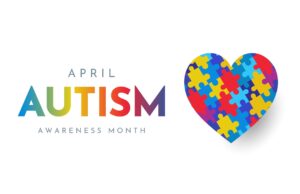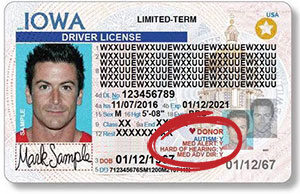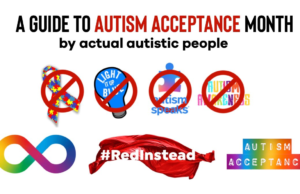‘To Siri with Love’ portrays autistic people as subhuman

“To Siri With Love” by Judith Newman, according to the vast majority of people who read and reviewed it, was a beautiful book detailing a kind mother’s experience raising her autistic son. It was praised by Kirkus Reviews as “writing with wit, humor and effervescent honesty,” and by comedian Jon Stewart as “a beautifully honest and illuminating love letter to Gus [Newman’s autistic son].”
The novel’s first chapter holds one of the most memorable scenes in the book, in which Newman became upset that Gus responded to her incorrectly and reacted by throwing Gus’s favorite toy in the trash. Gus was seven months old at the time. In this, Newman reveals that she’s not capable of productively interacting with her child, and that she sees nothing wrong with angrily punishing Gus instead of trying to reason with him.
Throughout the entire novel, Newman was judgmental of how Gus interacted with her, teaching him early on that the way he naturally communicated with people was wrong and had to be corrected. In chapter two, she wrote that Gus “would talk to me about two inches from my face if I weren’t constantly grabbing his shoulders and pushing him back.”
At this point in the book, Gus was a child. If, as a child, your mother constantly physically pushed you away from her whenever you tried to communicate, what would that do to you? Certainly nothing good.
In chapter three, Newman described her feelings of embarrassment when Gus’s school sent home a note regarding his hygeine. Gus explained that he disliked having water in his face, something that is common among many autistic people.
Newman refused to make even the simplest of accommodations. For someone who claims in her Twitter bio that she’s friendly to folks with autism, she’s surprisingly unwilling to consider their perspectives.
Another thing many autistic people struggle with is interpreting facial expressions. Knowing this, Newman could have taken the option of purchasing cards detailing facial expressions, which are frequently used to aid autistic people in learning to recognize those facial expressions. She could have regularly reminded herself that her son finds this difficult, and attempted to understand his perspective.
Instead, in chapter four of this so-called masterpiece, she wrote that “when Gus was little and had done something to make me crazy, I spent a lot of time pointing at my head and
shouting, ‘See this face? This is not a happy face.’” Tell me, Judith Newman, in what universe is this kind of parenting beneficial for the child?
However, Newman isn’t simply an angry parent. She’s also quite an insulting one and has no problem with calling her kid mean names in a published book. In chapter six, she quips, “Lately I’ve been getting fewer and fewer telemarketer calls. I suspect there’s a ‘Do Not Call: Batsh*t Crazy Kid at Home’ list.” I truly hope her son never picks up this book. I cannot imagine a single context in which calling your child batsh*t crazy is appropriate, and I cannot imagine why you would ever put that in your manuscript.
I don’t know what’s worse: calling your kid batsh*t crazy, or insinuating that he’s less than human because of his autism. Later in chapter six, she said, “Gus does not yet have self-awareness.” This comes off as hypocritical, considering that the average house cat probably has more self-awareness than the egocentric woman who penned this trainwreck of a book.
Later, in chapter eight, Newman stated plainly that she believed Gus should never parent children because he has such a limited understanding of what it means to be a parent. Meanwhile, here on planet Earth, hundreds if not thousands of autistic people are successfully raising children, probably in a much more accepting and loving environment than the one in which Newman is raising Gus.
In the same chapter, on the same topic of Gus fathering children, Newman takes a far more extreme tone than her earlier words. She wrote, “A vasectomy is so easy. A couple of snips, a couple of days of ice in your pants … How do you say ‘I’m sterilizing my son’ without sounding like a eugenicist?” A quick word of advice: if you can’t say it without sounding like a eugenicist, maybe don’t say it.
In chapter 13, Newman brings up the vasectomy idea again, writing, “I am still deeply worried about the idea that he could get someone pregnant and yet could never be a real father— which is why I will insist on having medical power of attorney, so that I will be able to make the decision about a vasectomy for him after he turns eighteen.” Hoping that he would get a vasectomy was bad enough. Saying he shouldn’t have kids just because he’s autistic was bad enough.
This? This is straight into eugenics territory. Eugenics promotes forcing sterilizations on members of the population containing so-called undesirable traits so that after a long period of time those traits will be erased. This is literally what Newman is considering doing to her child. Though she’s since come out and said that she doesn’t want all autistic people erased from the planet, it’s still worth mentioning that she wanted to sterilize her kid.
There are not enough expletives in the world to explain how this book made me feel.
After the release of “To Siri With Love,” it received a warm review from Kirkus, the New York Times and numerous other well-known publications. However, there was one group of people who thoroughly despised it. That group would be people who are autistic who read the book, who started a movement to #BoycottToSiri.
Most autistic people seemed to find the book at best offensive and at worst dehumanizing. It’s an understandable reaction. If someone were advocating that people like me be forcibly sterilized, I’d be angry too. In response, numerous autistic people reached out to Newman via Twitter. Within days, they would be blocked. It’s become abundantly clear that Newman doesn’t want to hear her critics.
She’d rather hurt someone with her words than challenge her own viewpoint. In this, her reaction to criticism is eerily similar to her parenting technique.









You must be logged in to post a comment Login